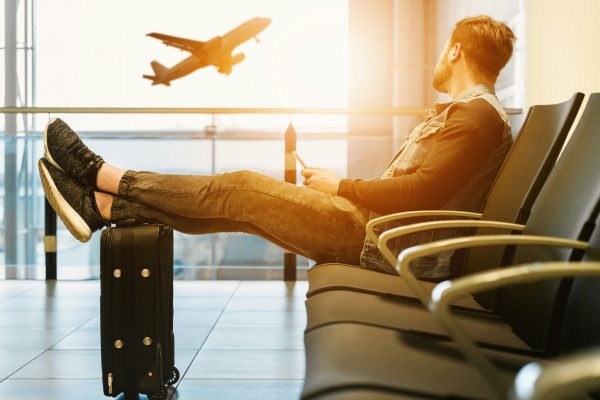I’m sure many Gen X-ers like me have childhood memories of flicking through glossy holiday brochures at their high street travel agents, with family holidays then booked off the back of the staff members’ recommendations. In the late 1980s and early 1990s, high street travel agents controlled about 90% of the market, and the top five UK tour operators accounted for 68% of 14.2 million packages sold.
Over the next decade or so these package holidays began attracting more targeted audiences – from honeymooners and families to the exuberant Club 18-30 crowd.
However, the advent of low-cost airlines and the digital disruption of online booking sites like Expedia and Lastminute.com in the mid to late 1990s saw consumers switch to putting together their own holidays, as the handholding offered by package holiday companies was less alluring.
Whilst technology was clearly a key factor in changing booking behaviour in the 1990s, decades later we seem to have come full circle as travel agents and tour operators are having their moment. After years of DIY holidays, Brits are flocking back to booking holidays with the experts. Consumers are craving more face-to-face contact and are finding it’s both enjoyable and cost-effective.
The proof is certainly on the high street, as Trailfinders is opening three more travel centres in 2024, bringing its total to 46. Hays Travel has recently added 64 new high street shops to its collection of over 450 branches after acquiring Just Go Travel, Travel House stores and Holiday with Us Group. Meanwhile, TUI is planning to add 20 new stores over the next 12 months, taking its number of high street outlets to 330 nationwide.
The reasons for this may seem obvious: so many people lost money or were displaced on trips due to booking independently during Covid. However, whilst this is a fundamental factor, there are many additional reasons which have led to customers ditching hours of their own research for the expertise of travel professionals.
In times of socio, economic and political turmoil, booking a trip with a travel agent or tour operator is more reassuring. Over the past year, the travel industry has had to navigate the devasting effects of war coupled with multiple natural disasters. Summer 2023 brought global wildfires to destinations like Rhodes, British Columbia and Maui, Hawaii, where the town of Lahaina was tragically reduced to ashes. This, coupled with major earthquakes in Turkey and Morocco, and the UK’s air traffic control technical challenges during the August Bank Holiday weekend, meant many consumers no longer wanted to take the risk of travelling without the backing of an established travel company.
It’s therefore not surprising that when booking a high-value item such as a holiday, many consumers want to put the onus back on to an expert. ABTA’s Holiday Habits 2023-24 report found that 35% of people booked a holiday with a travel professional over the last 12 months, with the figure rising to 45% for families with older children and those booking a package holiday, with 50% of all-inclusive holidays and cruise holidays booked through a travel professional (50%).
When asking customers why they booked with a travel professional, there was a much stronger focus on value compared to last year (up by 12% to 38%). This finding reflects the current economic pressure on finances, but also a greater appreciation for the ease of booking in this way, from the time it saves to the help and advice provided at every stage of the booking journey.
Financial protection is also a key consideration given rising costs. Package holidays offer the best form of legal and financial protection and, under the Package Travel Regulations, if a holiday is cancelled, customers are due a refund within 14 days. Consumers are also covered if the company they’re due to travel with goes out of business or if they’re not provided with the holiday that they paid for.
The business travel sector is similarly seeing a rise in the role of travel professionals, particularly with more complex bookings and emerging destinations. According to Fred Stratford, CEO, Reed & Mackay: “There has undoubtedly been a rise in climate-related and man-made challenges affecting travel destinations in the last two years. The effects of these issues are felt far beyond the area itself, and naturally causes concern for travellers around the world. In the case of business travel, these issues create increased duty of care requirements for companies with an international workforce, or those sending colleagues abroad for work. In most cases, these events have underscored the importance of booking travel with a well-established and reputable travel company or tour operator.”
As we head into 2024, Barclays’ latest spending report (based on data from 18 November – 24 December 2023), shows spending with travel agents grew by 12.8%. With 15% of British consumers looking to take more holidays in 2024, there’s every reason to be optimistic, as travel continues to be a priority spend. It also looks like many of us will be heading back to the trusty travel agent and tour operator for expert advice and competitive prices.
With consumer confidence in travel agents and tour operators at a current high, it’s important to stand out from the crowd and have a robust strategy in place. If you want help in reaching new target audiences, looking to hone your digital marketing strategy or are considering launching a new PR campaign in 2024, our team can drive this forward.
To understand more about how to implement PR and digital marketing into your communications strategy, let’s have a chat: hello@8020comms.com









